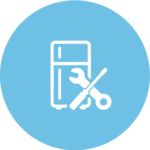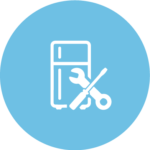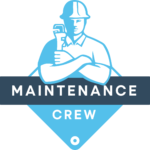
Professional Quality

Affordable Price

100% Satisfaction
*OUR PROJECTS*
Maintenancecrew is the New Zealand’s premier exterior house washing and commercial cleaning service where no job is too big or too small.

* INDOOR CLEANING *
General Cleaning:
- Start with decluttering to make cleaning more effective.
- Dust surfaces, including shelves, furniture, and electronics.
- Vacuum carpets and mop floors.
- Clean windows and mirrors.
Bathroom:
- Scrub the toilet, sink, and bathtub/shower.
- Clean mirrors and wipe down surfaces.
- Replace or launder shower curtains.
Bedroom:
- Change bed linens and pillowcases.
- Vacuum or clean under the bed.
- Dust and clean any bedroom furniture.
Living Room:
- Vacuum upholstered furniture.
- Dust and clean electronics.
- Launder or clean throw blankets and pillows.

* OUTDOOR CLEANING *
- Patio/Deck:
- Sweep away debris regularly.
- Scrub surfaces with a suitable cleaner.
- Clean and store outdoor furniture.
2.Garden:
- Remove weeds and dead plants.
- Prune overgrown shrubs and trees.
- Rake leaves and debris.
Exterior of the House:
- Clean windows and window sills.
- Power wash siding, if applicable.
- Inspect and clean gutters.
Garage:
- Organize tools and equipment.
- Sweep the floor.
- Dispose of unnecessary items.
Driveway/Walkway:
- Remove weeds and moss.
- Pressure wash to remove stains.
- Repair any cracks

* DOUBLE/SINGLE GLAZING RETROFITTING *
Assessment:
- Evaluate the condition of existing windows. Ensure that the frames are in good shape and can support the added weight of the glass.
Measurement:
- Measure the dimensions of the existing window openings accurately
Glass Selection:
- Choose the type of single glazing that meets your requirements. Options include clear glass, tinted glass, or low-emissivity (low-E) glass for enhanced energy efficiency.
Installation:
- Remove the existing single-pane glass or any additional layers if present.
- Install the new single glazing, ensuring a proper fit and sealing any gaps.
Weather Stripping:
- Consider adding or replacing weather stripping to enhance insulation and prevent drafts.

* DOUBLE/SINGLE REPLACEMENT *
Glass Type and Features:
- Choose the type of double glazing that meets your requirements. Options include clear glass, tinted glass, or low-emissivity (low-E) glass for enhanced energy efficiency. Consider features like gas fill (argon or krypton) for better insulation.
- Frame Material:
Decide on the material for your window frames. Common materials include uPVC, aluminum, and wood. Each material has its own set of advantages and considerations.
Energy Efficiency Ratings Look for double glazing units with energy efficiency ratings suitable for your climate. High-quality windows can significantly contribute to energy savings in the long run.
Professional Consultation: Consult with window professionals or contractors. They can provide recommendations based on your specific needs and home conditions. They may also help with obtaining the necessary permits and complying with local building codes.
Obtain Quotes: Get quotes from multiple window replacement companies. Compare the quotes, considering both cost and the reputation of the companies.

* LAWN MOVING *
Mowing Frequency:
- Regular mowing helps maintain a healthy lawn. The frequency depends on the grass type, season, and growth rate. Typically, mow when the grass is about one-third higher than the recommended height.
Proper Mowing Height:
- Adjust the mower height based on the grass type. Different types of grass have different ideal mowing heights. Cutting too much at once can stress the grass.
Sharp Blades:
- Keep your mower blades sharp. Dull blades tear the grass instead of cutting it cleanly, leading to a less attractive lawn and making it more susceptible to diseases.
Alternate Mowing Patterns:
- Change your mowing pattern regularly. This prevents the grass from developing a “grain” and helps avoid soil compaction.
Leave Clippings:
- Consider leaving grass clippings on the lawn. They can act as a natural fertilizer, returning nutrients to the soil.

* KITCHEN MAINTENANCE *
Maintaining your kitchen regularly ensures a clean, functional, and safe space for cooking and food preparation. Here’s a comprehensive guide to kitchen maintenance:
Clean Countertops:
- Wipe down countertops with a mild cleaner to remove crumbs, spills, and stains.
Clean Spills Promptly:
- Quickly clean up any spills on the floor to prevent slips and stains.
Wash Dishes:
- Wash dishes promptly or load them into the dishwasher. This prevents the buildup of dirty dishes.
Sanitize Surfaces:
- Use a disinfectant to sanitize high-touch surfaces like doorknobs, cabinet handles, and light switches.
Clean Sink and Drain:
- Clean the sink, faucet, and drain. Consider using a mixture of baking soda and vinegar to freshen the drain.
Check and Clean the Garbage Disposal:
- Run ice cubes and citrus peels through the garbage disposal to clean and deodorize it.
Inspect and Clean the Range Hood:
- Clean the grease filter and wipe down the exterior of the range hood.
Clean Inside Cabinets and Drawers:
- Remove items from cabinets and drawers, clean the interior, and organize the contents.
Inspect and Clean the Oven:
- Clean the oven interior and exterior. Check for any issues with the oven’s heating elements.

*PROPERTY MAINTENANCE *
Inspect and Repair Roof:
- Regularly inspect the roof for damaged shingles, leaks, or other issues. Arrange for repairs as needed.
Gutter Maintenance:
- Clean gutters and downspouts regularly to prevent clogs and ensure proper drainage.
Inspect and Seal Windows and Doors:
- Check for drafts and leaks around windows and doors. Seal gaps with weatherstripping or caulk.
Landscaping:
- Trim trees and bushes, mow the lawn, and maintain the overall landscaping to enhance curb appeal.
Inspect and Clean Chimney:
- If applicable, inspect and clean the chimney annually to prevent fire hazards.
- Heating and Cooling Systems: Schedule regular maintenance for HVAC systems, including cleaning filters and checking for any issues.
- Plumbing Checks: Inspect for leaks, check water pressure, and ensure proper drainage. Fix any plumbing issues promptly.
- Inspect and Test Smoke/Carbon Monoxide Detectors: Test and replace batteries in smoke and carbon monoxide detectors. Replace units as needed.

*HANDYMAN SERVICES*
Handyman services encompass a wide range of general maintenance, repair, and improvement tasks around the home or property. Hiring a handyman can be convenient for addressing small to medium-sized projects that don’t necessarily require specialized skills. Here’s an overview of the types of tasks typically handled by handyman services:
Minor Plumbing Repairs:
- Fixing leaks, repairing faucets, unclogging drains, and addressing minor plumbing issues.
Electrical Work:
- Installing or replacing light fixtures, ceiling fans, outlets, switches, and addressing minor electrical repairs.
Carpentry:
- Repairing or installing shelves, cabinets, molding, baseboards, and other woodwork.
Minor Plumbing Repairs:
- Fixing leaks, repairing faucets, unclogging drains, and addressing minor plumbing issues.
Electrical Work:
- Installing or replacing light fixtures, ceiling fans, outlets, switches, and addressing minor electrical repairs.
Carpentry:
- Repairing or installing shelves, cabinets, molding, baseboards, and other woodwork.
Painting and Touch-ups:
- Interior and exterior painting, as well as touch-ups and repairs to walls and ceilings.
Drywall Repair:
- Patching holes, fixing cracks, and addressing other minor drywall issues.
Door and Window Repairs:
- Adjusting or repairing doors and windows, fixing locks, and installing weatherstripping.
Furniture Assembly:
- Putting together furniture from flat-pack kits.

*REPAIR *
Identify Issues:
- Regularly inspect your property to identify any issues, such as leaks, structural damage, or malfunctioning systems.
Prioritize Repairs:
- Prioritize repairs based on urgency and the impact on safety, functionality, and property value.
DIY vs. Professional Help:
- Determine if repairs can be done as do-it-yourself (DIY) projects or if professional assistance is required. Some repairs, especially those involving structural or electrical components, may necessitate hiring a qualified contractor.
Budgeting:
- Estimate the costs associated with repairs, including materials and labor if hiring professionals. Create a budget to ensure you can cover the expenses.
Plumbing Repairs:
- Fix leaks, unclog drains, repair or replace faucets, and address any issues with toilets or water heaters.
Electrical Repairs:
- Address faulty wiring, repair or replace outlets and switches, and fix any electrical malfunctions.
Roof Repairs:
- Fix leaks, replace damaged shingles, and address any issues with the gutters and downspouts.
HVAC Repairs:
- Service and repair heating, ventilation, and air conditioning systems to ensure optimal functionality.
